Free Fiction
Free fiction Wednesday continues the urban fantasy thriller of shapeshifter Jaymee Gray and her immortal lover. Click Here.
Free fiction Wednesday continues the urban fantasy thriller of shapeshifter Jaymee Gray and her immortal lover. Click Here.
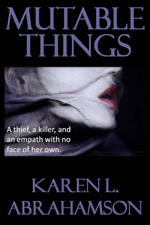 This week’s Free fiction brings more of Jaymee Gray and David Corbin’s paranormal adventure in the caffeine-addicted heart of Vancouver. To read on click HERE.
This week’s Free fiction brings more of Jaymee Gray and David Corbin’s paranormal adventure in the caffeine-addicted heart of Vancouver. To read on click HERE.
In southern Portugal, at a place called Sagre, I stood on red cliffs, high above an azure ocean and inhaled ocean wind and dust that had blown all the way from Africa. There, in an ancient fortress, laid out amid the scrub grass and rocky ground and seabird guano, laid a thirty foot, circular, roped off area that contained an old wind rose – a collection of ray lines that spread out to all points of a compass. This was the legendary home of Prince Henry the Navigator.
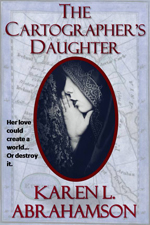 This was a few years back, when I had the good fortune to spend a month traveling around Portugal researching a prince for a book I was writing (The Cartographer’s Daughter). The prince I researched was none other than Prince Henry about whom the entire Portuguese psyche seems to revolve – or else he’s just a key tourist draw. You see everywhere you go in Portugal there are memorials to the old boy’s doings. In Porto there’s a museum that celebrates his birthplace. In Lisbon grand statues stand over the harbor and paintings of him fill the maritime museum. In Lagos another museum waits and elsewhere there are plaques and other statues. Why, you might ask? What did this man very few North Americans have heard of, do to deserve this kind of canonization?
This was a few years back, when I had the good fortune to spend a month traveling around Portugal researching a prince for a book I was writing (The Cartographer’s Daughter). The prince I researched was none other than Prince Henry about whom the entire Portuguese psyche seems to revolve – or else he’s just a key tourist draw. You see everywhere you go in Portugal there are memorials to the old boy’s doings. In Porto there’s a museum that celebrates his birthplace. In Lisbon grand statues stand over the harbor and paintings of him fill the maritime museum. In Lagos another museum waits and elsewhere there are plaques and other statues. Why, you might ask? What did this man very few North Americans have heard of, do to deserve this kind of canonization?
I suppose the answer can be found in the wind rose.
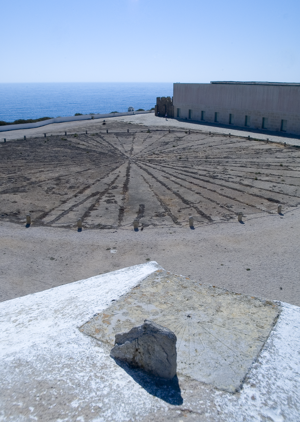
No, Henry didn’t invent the wind rose. Simply put, this foppish, spendthrift prince could be called the father of the Age of Exploration. Yes, there were many people that contributed to the dawn of new age of Europe, but good Prince Henry had something to prove and the full might of the Knights of Christ, the inheritors of the Knights Templar after they were disbanded, to help him do it. But I run ahead of myself. So who was Prince Henry?
The middle son of the Portuguese king, Henry was born under stars that astrologers proclaimed would devote Henry to ‘great and noble conquests and to uncovering secrets previously unknown to men’. Imbued with this sense of destiny, how could he help but be more than a middle son?
Henry grew up to be an ardent Christian and to become the head of the Knights of Christ. Along with that, came a driving hatred of the Moors and a determination to rid the European continent of them (they still held Granada). It also led to a dream of taking the Crusades across Gibraltar to Tangiers. His drive and his influence over his father led to one of the last European crusades—this one against the Moroccan trade city of Ceuta. The Portuguese won and held the city, but later, when they tried to advance they ended up routed from Tangiers and having to trade Henry’s younger brother for their freedom. This horrible blow some historians lay at Henry’s doorstep, but the loss of his brother was fuel to Henry’s fervor and he spent much of his life trying to revive the crusading fever amongst his cronies. It never came to be, but in the meantime Henry influenced a nation because he began to focus on maritime issues.
As a patron he began sending men on exploration along the African coast. Yes, he may have also been seeking a road to Christian Kings who could help him against the Moors, but his push and his financing, led to Gil Eannes becoming the first man to round Cape Bojador, which previously had been described as the end of the earth due to its difficult currents. With that passage, and with the improved sails and hull structures Henry’s money fostered, he ripped down a psychological barrier and the length and breadth of Africa beckoned. This led to a series of explorations sponsored by Prince Henry. He also fostered the collection of maps and sailors’portolan charts so that navigational information was shared and developed, before they became guarded national secrets.

The interesting thing about Henry is that though we know so much about him, he still remains a man of mystery and legend. Records seem to show that he was an austere man who was deeply religious and sometimes given to mysticism at the same time as he liked to dress in foppish clothes and lavishly over spend the wealth of his estate holdings. He was also a man of learning who funded universities and financed astrologers and physicists and cartographers. But as I stood in Sagre by that wind rose I was struck by the rugged beauty that must have inspired him – that is until I went into the site’s visitor’s centre and they advised me that this fortress in Sagre was never a cartography school, though he did make his home here.
And the wind rose?
Henry’s involvement is just the stuff of legend.
 Chapters nine and ten are now up. To continue reading Jaymee’s story, click Here.
Chapters nine and ten are now up. To continue reading Jaymee’s story, click Here.
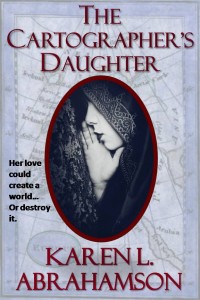 This past summer I had the ‘interesting’ experience of living like a writer. My day-job contracted work dried up and I basically had no work for July and August – except my writing. Nothing to do except sit in the sun, walk my cats (yes, on a leash), and the business of writing. Sounds like a lovely dream, doesn’t it? Yes, it was, but it also involved a heck of a lot more discipline and work than most people would have thought. And that’s why I’m writing this post because living like a writer isn’t just sitting staring out a window and typing when inspiration strikes, the business of being an independent writer requires deadlines and non-writing work and most of all, an awful lot of self talk. So what did my writing summer entail?
This past summer I had the ‘interesting’ experience of living like a writer. My day-job contracted work dried up and I basically had no work for July and August – except my writing. Nothing to do except sit in the sun, walk my cats (yes, on a leash), and the business of writing. Sounds like a lovely dream, doesn’t it? Yes, it was, but it also involved a heck of a lot more discipline and work than most people would have thought. And that’s why I’m writing this post because living like a writer isn’t just sitting staring out a window and typing when inspiration strikes, the business of being an independent writer requires deadlines and non-writing work and most of all, an awful lot of self talk. So what did my writing summer entail?
1. Setting Goals – I knew in June that my contract work was going on hiatus, so I spent some time planning. I also (thankfully) spent a wonderful few days at the Think Like a Publisher workshop put on by Dean Wesley Smith and William Scott Carter where I developed an even more detailed set of goals for my summer. The thing that was interesting for me, is that the plan wasn’t rocket science and yet I’d had a heck of a time setting as detailed a plan for myself. Critical to the goals was making sure there was time for both writing and the business of writing. Setting this plan was as simple as creating two columns on a piece of paper, one with the writing goals and one column for the business of writing goals. The writing goals came first, but just having all the goals written down gave me a sense of clarity and I could plan my months ahead easily.
2. Setting up a schedule- I’m used to this, because being self employed, if I don’t set up a schedule things like my writing will never get done. My summer writing schedule involved getting up every morning and writing for at least two hours and possibly more depending on what I was working on, or where I was in the project. The schedule also built in reading time, exercise, social time and the BUSINESS.
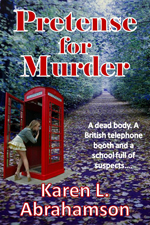 3. Learning the Technology – As I’ve ventured down the self-publishing road, I realized I needed to understand a lot more than how to structure a novel. I needed to know better how to format and publish books both in e- formats and also for print on demand. That meant learning how to use not only electronic publishing formats, but also how to use programs like InDesign and Photoshop with more ease.
3. Learning the Technology – As I’ve ventured down the self-publishing road, I realized I needed to understand a lot more than how to structure a novel. I needed to know better how to format and publish books both in e- formats and also for print on demand. That meant learning how to use not only electronic publishing formats, but also how to use programs like InDesign and Photoshop with more ease.
4. Learning the Business – This involved delving into a number of different areas, from how to blog more effectively (still working on that), to how to connect with others on social media (yes, I finally started to use Twitter though I still don’t fully understand it), and marketing.
So now that September is here, it’s time to review how I did and what I learned:
I accomplished my writing goals for the summer which were to complete a novel started I started in June, as well as two novellas. (Unfortunately one of the novellas wants to grow up to become a novel, so back to the drawing board on that one.) What did I learn? That my proclivity to write long still haunts me, but I can still maintain a schedule of writing even when I’m also involved with the business. This was a revelation for me, as I have spent the last few years struggling to maintain my creativity while also keeping up with the soul-sucking process of traditional marketing.
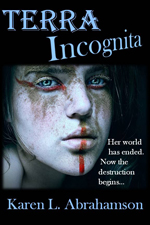 I accomplished my business goals as well: I had three novels that I wanted to have e-published as well as three short stories. All of these have been published. As well I wanted to have one novel published in print on demand. I actually achieved more than this and managed to have three novels approved and available for POD.
I accomplished my business goals as well: I had three novels that I wanted to have e-published as well as three short stories. All of these have been published. As well I wanted to have one novel published in print on demand. I actually achieved more than this and managed to have three novels approved and available for POD.
I updated my websites and found better ways to display my books. I established direct sales bookstores for my print publications and went through the hassle of obtaining ISBNs from the Canadian Government for my print books. I arranged for the development of a specialty website to fit with a series of fantasy books I write.
All of this filled my days so that aside from an hour or so exercise every day, I really wasn’t laying around in the sun. Better for my skin anyway, I suppose.
But perhaps the biggest accomplishment this summer was learning what it takes to be a writer, both financially and mentally. Financially, it meant that my spending had to cut right back, because I didn’t want to dig too deep into my savings. Mentally it meant that I had to recognize the legitimacy of what I was doing. I was writing. I was in business. But you know what? Even knowing that I was working at something all day at least five days a week (and usually seven) I still experienced a strange phenomenon: Guilt.
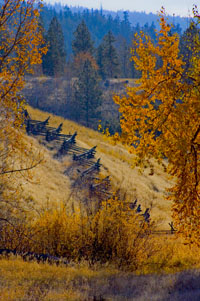 Guilt that I could be doing something I loved so much, while everyone else still had to go to work. And I wasn’t on vacation! Now that it’s September and my contract work is back in full swing, I really would love to go back to dealing with that guilt again. Now to set goals for the winter (and hope my contract work dries up again next summer).
Guilt that I could be doing something I loved so much, while everyone else still had to go to work. And I wasn’t on vacation! Now that it’s September and my contract work is back in full swing, I really would love to go back to dealing with that guilt again. Now to set goals for the winter (and hope my contract work dries up again next summer).
I recently had a spate of medical tests that involved injected dyes and C.T. scans. There I was, laying on this human-sized platter waiting to get dragged through this donut-shaped machine with multiple monitors and IV tubes and straps etc. hanging from spider-like ceiling beams to snake into my arms. It was all a new experience for me and not one I particularly liked, but the newness shocked me into taking heed of all the sensations and what was going on. It reminded me of the importance of being in the moment for writers.
I’ve always been taught that being in the moment involves being ‘present’. That means that you are fully aware of what is happening to and around you, including all of your bodily sensations. It is not allowing all the thoughts about where you want to be and how to get there, or the thoughts of where you were and your various regrets, to get in the way of attending to where you are.
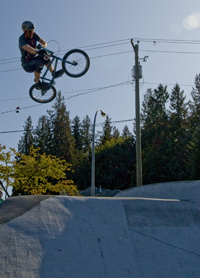
Sounds like a simple concept, but it’s harder than you know. Try going for a walk and just attending to the feelings in your body and your surroundings. Don’t be surprised when you come-to thinking about what to cook for dinner tonight, or your job, or the blog you need to write for next week. It’s a lot like suddenly becoming aware you’ve almost arrived at your destination and for the life of you, you can’t recall the driving. You’ve totally zoned out and as a result you’ve missed the scenery along the drive, or the birds in the trees, or the scent of an unusual flower. Or life, for that matter.
All of us do this. We’re so incredibly busy running from issue to issue and task to task in our lives that we feel we HAVE to double and triple multitask in order to get everything done. Heck, I do this knowingly every time I go for a walk and try to work through a plot problem.
As a writer we need to be aware of this tendency and to work on being in the moment. If we do so we can find the marvelous little details, or the glimpses of the human condition that can make our writing richer. From my time on the human platter I’m going to remember the burn of the dyes as it moved through my blood stream and the taste of hot copper taste on the back of my tongue. They’ll appear somewhere in my writing, because being in the moment, I noticed them.
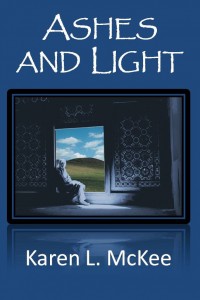 Readers of my books set in Afghanistan or Portugal and Burma often ask me how I got the details right. Of course the answer is research, and in all truth I can’t say that I got all the details right, but for me to write I have to have a sense that I have enough knowledge of the place and the culture to write it correctly, or as close to correctly, as I know how. Same goes for a particular time period or a specific piece of technical knowledge. This blog is about how I go about building the knowledge so that when I sit down to write it flows out of my hands.
Readers of my books set in Afghanistan or Portugal and Burma often ask me how I got the details right. Of course the answer is research, and in all truth I can’t say that I got all the details right, but for me to write I have to have a sense that I have enough knowledge of the place and the culture to write it correctly, or as close to correctly, as I know how. Same goes for a particular time period or a specific piece of technical knowledge. This blog is about how I go about building the knowledge so that when I sit down to write it flows out of my hands.
1. Reading: I read about what I want to write about. I read fiction that gives me a flavor of how other people write about a location. I read non-fiction accounts, memoirs, biographies and histories. These both allow me to pick up the nuggets these writers gleaned about the place or culture. I’ll pick up cheap coffee table books from remainder tables at book stores just so I can look at the photos. This often fuels my sense of place. I haunt the history and geography sections of used book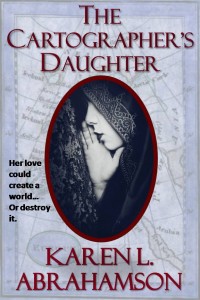 stores like Powell’s to find relevant writing about the place or timeframe, like for 1400’s Portugal for my upcoming book, The Cartographer’s Daughter. I’ll read the coffee table book if something captures my imagination. For example, I was living in Thailand and saw a small coffee-table book about Burmese Puppets. I picked it up and what I read spurred me to want to write a story about the puppets – I know, it’s a ridiculously esoteric subject – but I read that book from cover to cover and used it as a jumping off place to identify other information I needed to know.
stores like Powell’s to find relevant writing about the place or timeframe, like for 1400’s Portugal for my upcoming book, The Cartographer’s Daughter. I’ll read the coffee table book if something captures my imagination. For example, I was living in Thailand and saw a small coffee-table book about Burmese Puppets. I picked it up and what I read spurred me to want to write a story about the puppets – I know, it’s a ridiculously esoteric subject – but I read that book from cover to cover and used it as a jumping off place to identify other information I needed to know.
2. Maps: I’m a huge fan of maps. Maps give a me a sense of location and perspective. I recall traipsing around Venice, and it was the maps with the bird’s eye view that I first looked at when I arrived, that stopped me from ever getting totally lost in the maze of streets, canals and alleys. The same map put into perspective where Marco Polo’s house was and how that location within Venice might impact his view of the world. Maps let you identify potentialities in the location and they also show specific locations for events in your stories. Maps, I find, are an inspiration.
This is especially the case in writing historical stories, because maps not only show you the landscape back then, but they also tell you a lot about the culture, belief system and world view of the people. I’ll talk more about maps in a later blog.
Similar to historical fiction, when the story is a fantasy set in a fantasy landscape, I make maps up. Knowing where things are located and having place names in your head, allows you to build histories around those landscapes which are so important to making fantastical places real. It also forces you to think how long it would take to get from point A to B and about how the landscape would impact the characters who live or travel there.
3. Talking to people: Talking to people who are experts in their fields can help to get the details right. It can also be a source of inspiration with those odd facts that are so obvious to the experts, but no one else is aware of. These are jewels for writers, because they let readers in on the secret language of whatever this specialty is.
When I was writing about the Burmese puppets I had the good fortune to travel in Burma(Myanmar) and made a point of going to every puppet show in every 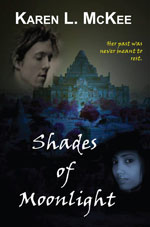 town I travelled through. I made arrangements to interview the owner of one of the shows in Mandalay who spoke moderately good English and he referred me on to another man who made the puppets. It turned out this kind man was an ex-surgeon and spoke excellent English. He had been instrumental in providing information to anthropologists doing research on the puppets and kindly showed me how they were made, demonstrated some of them for me and even gave me a precious manuscript he had received from the anthropologists so that I could photocopy it for myself. You have to understand that at the time Burma was almost a closed country and that he was taking a risk even talking to me, a writer. Those items I treasure to this day and those unbound pages still have a place of honor on my bookshelves. They were also critical to a couple of fantasies and Karen L. McKee’s Paranormal Romance, Shades of Moonlight.
town I travelled through. I made arrangements to interview the owner of one of the shows in Mandalay who spoke moderately good English and he referred me on to another man who made the puppets. It turned out this kind man was an ex-surgeon and spoke excellent English. He had been instrumental in providing information to anthropologists doing research on the puppets and kindly showed me how they were made, demonstrated some of them for me and even gave me a precious manuscript he had received from the anthropologists so that I could photocopy it for myself. You have to understand that at the time Burma was almost a closed country and that he was taking a risk even talking to me, a writer. Those items I treasure to this day and those unbound pages still have a place of honor on my bookshelves. They were also critical to a couple of fantasies and Karen L. McKee’s Paranormal Romance, Shades of Moonlight.
If you can’t talk to the people, you might be able to get in touch via e-mail. When I was writing my Afghan novel I was in touch with past foreign correspondents, and members of the military that friends helped me locate.
Writing about other cultures, it’s also important to talk to people of that culture. For my Afghanistan book I spent a number of coffee and lunches interviewing a lovely Afghani woman who was brave and interested enough to talk to me about woman in her culture, about her faith and about what was happening in her country, as well attitudes amongst her people towards the foreigners ‘liberating’ her country. These attitudes shaped my characters. She also provided me with small phrases and legends that are common in her country. These are also gold because they allow you to build in the real words and beliefs of the people.
4. Old Newspapers: If you are writing about a historical period where there were newspapers, or you are writing about another part of the world and can get newspapers in a language you can read from that time period, this can be an invaluable way to get a sense of the background events that were occurring in the location at the time you are writing about. Nowadays many major newspapers have their archives available on line. Reading the old papers can also spur inspiration regarding events that are reported and how your characters might have been involved or touched by the event, and can also give you a sense of fashion and language used ‘back in the day’. For example, a story about how bats had taken over the old Regina City library back in the 1920s led to an opening chapter of the first adult novel I ever wrote.
5. Library and Internet research: Having a local librarian as an ally can be a boon, because a librarian can suggest you try looking at books in areas you might not have even thought of. University libraries are also superb resources. When I was writing about Burma I wanted a specific book about the magic systems and the animistic spirit worship. There’s been very little written on the subject at the time, but there was one fairly comprehensive anthropological study. I found the book (a very old, falling apart version) and ended up photocopying the whole thing so I could have it available as a resource.
The internet can be helpful in finding old journals and photos of locations taken by other travelers. Blogs can be a wonderful source of information, both about the place and about the traveler’s reactions to it. I used old articles in The Economist and old travel journals about a very rough ride through northern Afghanistan to bring realism to my novel set in that country.
6. Travel: I try to travel every few years and I don’t go to resorts and I don’t do tours. I go to places I think I might want to write about and I spend my time poking around the back streets and absorbing the feel of the place. I spend time talking to people to get a sense of people’s attitudes. I’ll sit in a park and let people come to me. I talk to waiters and taxi drivers and vendors on the street – often with very limited communication skills because we speak different languages, but enough to get a sense of small bits of their realities—like the

woman who worked in one city in Peru, but who had left her children behind in another city because there was better money to be earned where she was – a hard economic choice the country’s situation had forced on her.
Before I travel I think about where I want to go and what I want to see and a plan a general itinerary around that, but I also let fate take me where it will. There have been times when a chance meeting, or a wander off the beaten path, has allowed me to find something wonderful that takes the potential writing in a whole new direction.
So research for writing isn’t so much simply gathering facts and then writing about them, it’s about immersing yourself in a location or situation (even if you’ve never been there), so that when you sit down to write the place itself inspires what you are writing. I recall my Afghan book as one of the most difficult books I have ever written. Why? Because I had so many false starts on the book. I would start and get a chapter in and realize I wasn’t ready to write that story yet because I wasn’t filled with the sense of place and the culture. So I kept on researching and wrote other books and then one day I sat down and the book poured out wiht all the wonderful details in just the right places. And yes, there are probably errors in the book, because in a war-torn country there are places so remote that you just can’t get the information. So you know what? There are things in that book that arose purely from my imagination.
Because it’s fiction, folks. Remember that. Fiction.
This week’s free fiction is a horror/fantasy set in the wilds of Canada’s North.
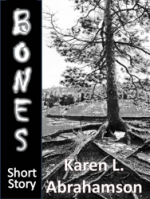
 I’ve been thinking about magic systems a lot lately because I’ve been working on novels that involve magic and I’ve been planning out book number two in the Terra Trilogy. I also happened to catch a bit of Jurassic Park last night and for the first time really heard the Jeff Goldblum character give his lecture about how the Jurassic Park scientists had come by their science too easily, and how everything – in their case the creation of dinosaurs—came at a price. In Jeff’s case he was foretelling the deadly price that was to come in the movie, but what he said resonates on many levels. Everything has to come at a price to characters, especially when it comes to magic.
I’ve been thinking about magic systems a lot lately because I’ve been working on novels that involve magic and I’ve been planning out book number two in the Terra Trilogy. I also happened to catch a bit of Jurassic Park last night and for the first time really heard the Jeff Goldblum character give his lecture about how the Jurassic Park scientists had come by their science too easily, and how everything – in their case the creation of dinosaurs—came at a price. In Jeff’s case he was foretelling the deadly price that was to come in the movie, but what he said resonates on many levels. Everything has to come at a price to characters, especially when it comes to magic.
This relates to the planning and the world-building a writer must do before they write their book. I recall when I wrote my first book set in the Cartos universe, a universe where god created both humans and older beings made not of clay, but of earth and the Creator’s blood. This gave them the power to Create and change, so they can rewrite the landscape of their world. But the power of almost gods has to come at a price, so what would be fitting? Sure, there would be exhaustion, but there has to be something more. Logically, the price has to relate to the magic, so Creation had to play into the price. In this case, use of the Cartos magic means they are taking power from the mother goddess, so the price is that they must repay that creation. Which means that after the use of their power, they desperately need sex, which repays creation with procreation. If they don’t have sex, lets just say bad things happen. It may sound funny when I talk about it, but think about the consequences. No wonder the characters are hedonists and generally bitchy. How would you feel with a case of lust that literally burns in your bones after you’ve used the magic? Think about the societal impacts that sort of magic might have. It plays big into my upcoming epic Fantasy, the Warden of Power, and equally as big into my dytopian Fantasy, TERRA Incognita, my Historical Y.A. fantasy The Cartographer’s Daughter which will be coming out in September and in my current Urban Fantasy Afterburn, all of which take place in the Cartos universe.
But the price of magic exists even when it isn’t quite as front and centre. Magical creatures pay a price for their power. The Fairy folk can’t touch iron. Vampires, by their very nature, are killed by sunlight. Werewolves lose total control once a month and have to live with the guilt they inflict on the people they kill. Zombies—well—they fall apart, and even Patricia Briggs’ Mercy Thompson character who seems to get off pretty lightly for being a shape shifter, is part of a race that has been almost wiped out because of their power.
In today’s commercial world, this need to ‘pay’ seems normal, because these creatures aren’t gods. They are creatures ‘imbued’ or, some would say, ‘inflicted’ with magic. So magic is not only their ‘specialness’ but it is also a burden to carry. After all, even the Cartos carry the burden of Creation and knowing that if they change the landscape, they change all the beings on it—including the humans with whom they intermarry.
As non-magical beings and, in my case, a writer, I think this is one of the key lessons perhaps Jeff Goldblum, and Michael Crichton, author of Jurassic Park, were commenting on. Yes, they were talking about scientists, but in today’s society we need to remember that everything comes at a price and not just at the grocery or the department store. Last night, in addition to Jurassic Park, I also caught a National Geographic special on Patagonia and Tierra del Fuego. The special talked about the huge decline in the penguin, parrot and albatross colonies and in the dolphin and sea lion populations due to the industrial fishing taking place in that part of the world. Night shots from space showed the lights of the industrial fishing fleets were brighter, and larger, than the lights of Buenos Aires. Think about it: The fishing fleets are larger and brighter than a major metropolis! And so the sardine and other fish populations are disappearing and so are the birds and the porpoise and the seals that feed on them. Many of the young birds starve to death because their parents have to travel so far (fifty miles or more) for food and can’t get back in time to feed the chicks.
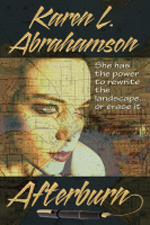 Many years ago, I read the wonderful fantasy novella by Larry Niven called The Magic Goes Away, about a world where all the magic had been used up. As I watched the Patagonia show last night it seemed to me that we are using up our own real magic— the funny little penguins , the rush of wings of the brightly colored parrots, the leap of the dolphin. When I read that book I was filled with a horrible sense of loss–the same feeling I had last night watching that show.
Many years ago, I read the wonderful fantasy novella by Larry Niven called The Magic Goes Away, about a world where all the magic had been used up. As I watched the Patagonia show last night it seemed to me that we are using up our own real magic— the funny little penguins , the rush of wings of the brightly colored parrots, the leap of the dolphin. When I read that book I was filled with a horrible sense of loss–the same feeling I had last night watching that show.
Unlike all those magical characters, we haven’t yet realized the price we’re about to pay.
This week’s free fiction story: Ruffles: Almost a Love Story